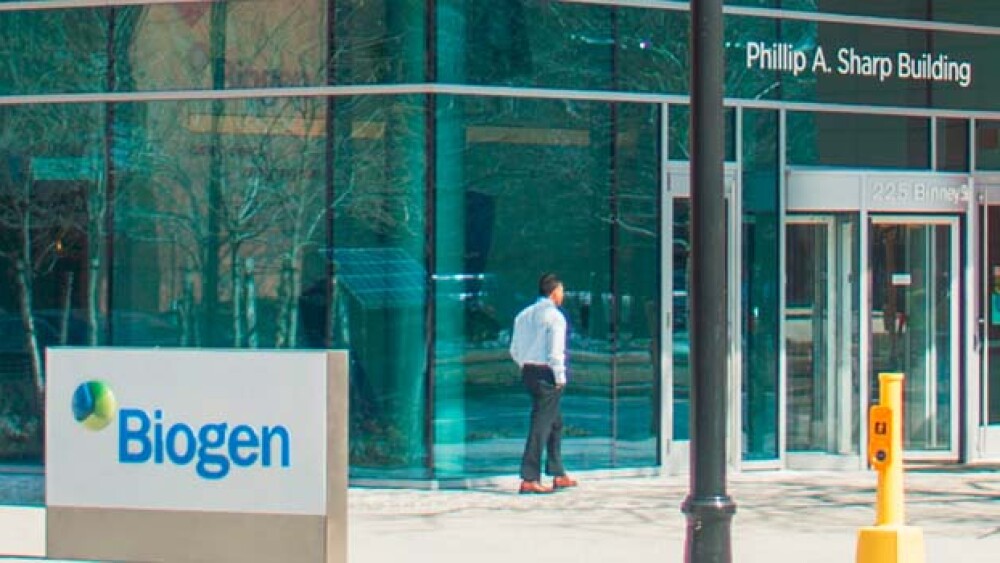Biogen and Eisai announced positive topline results from their Phase II clinical trial of BAN2401 in Alzheimer’s disease.
Biogen and Eisai announced positive topline results from their Phase II clinical trial of BAN2401 in Alzheimer’s disease. Before everyone gets too excited, it should be noted that the drug failed its primary goal at the 12-month mark, of showing better results over placebo. But this trial announcement was looking at 18 months of data from the trial. The positive effects were observed in one of five doses—the highest one. But it did appear to have a significant positive response on both cognition and accumulation of amyloid plaques in the brain.
The trial evaluated 856 patients with early Alzheimer’s disease. They were randomized into receiving one of five doses of BAN2401, an anti-amyloid beta protofibril antibody, or placebo. The topline data of the final analysis after 18 months of treatment showed patients who received the highest dose, 10 mg/kg biweekly, compared to placebo, had a statistically significant slowing of disease progression.
The disease progression was evaluated by predefined conventional statistics on ADCOMS, a combination of items from the Alzheimer’s Disease Assessment Scale-cognitive subscale (ADAS-cog), the Clinical Dementia Rating Sum of Boxes (CDR-SB) scale and the Mini-Mental State Examination (MMSE). Patients also showed a reduction in amyloid PET standardized uptake value ration (SUVR) and amyloid PET image visual read—which is a complicated way of saying that the patients received PET scans that showed a decrease in amyloid in the brain under two different methodologies. The highest dose of the drug showed the most benefit, as early as six months, as well as at 12 months.
The drug had an acceptable tolerability profile throughout the study. It is given via transfusion, and there were infusion-related reactions, which were classified as mostly mild to moderate. There were also Amyloid Related Imaging Abnormalities (ARIA), specifically ARIA-E, or edema, but not more than 10 percent in any of the treatment arms, and less than 15 percent in patients with the biomarker APOE4 at the highest dose in the trial.
“The 18-month results of the BAN2401 trial are impressive and provide important support for the amyloid hypothesis,” said Jeff Cummings, founding director, Cleveland Clinic Lou Ruvo Center for Brain Health, in a statement. “I look forward to seeing the full data set shared with the broader Alzheimer’s community as we advance against this devastating disease.”
The amyloid theory has come under attack in recent years after failure after failure of clinical trials of drugs that clear amyloid plaques or prevent their formation. It should also be noted that many of those trials looked positive in Phase II trials, but failed in larger Phase III trials. Most recently, several companies investigating BACE inhibitors, which block an enzyme essential to the formation of amyloid plaques, either didn’t provide significant results or were too toxic to continue the trials.
In addition, a recent trial of 70 patients of Biogen’s BACE inhibitor showed a reduction in amyloid plaques but no improvement in patient cognition.
Details of the reported data will be forthcoming at a future medical conference. Meanwhile, there are plenty of questions. For example, the size of the sample receiving the highest dose is currently unknown. And the companies used a homemade metric to evaluate cognition, using a composite score, not the group of standard tests normally used in Alzheimer’s trials. Apparently the companies had already discussed this metric with regulators.
Biogen is also betting big on another drug for Alzheimer’s, aducanumab, which is being tested in late-stage trials and expecting a readout in 2020. Al Sandrock, Biogen’s chief medical officer, told Forbes, “We have two drugs either of which could be the very first disease-modifying therapy for Alzheimer’s. To see it once is one thing, but to see it again with a very different antibody is like repeating the experiment twice and seeing the same results.”
Other researchers are skeptical. Lon Schneider, a physician and Alzheimer’s researcher at the University of Southern California, told Forbes, “Would you bet your dollar over whether this is a confirmation of the aducanumab study? I think some bettors will read it that way. But they really need to see the data and understand the trial design.”





